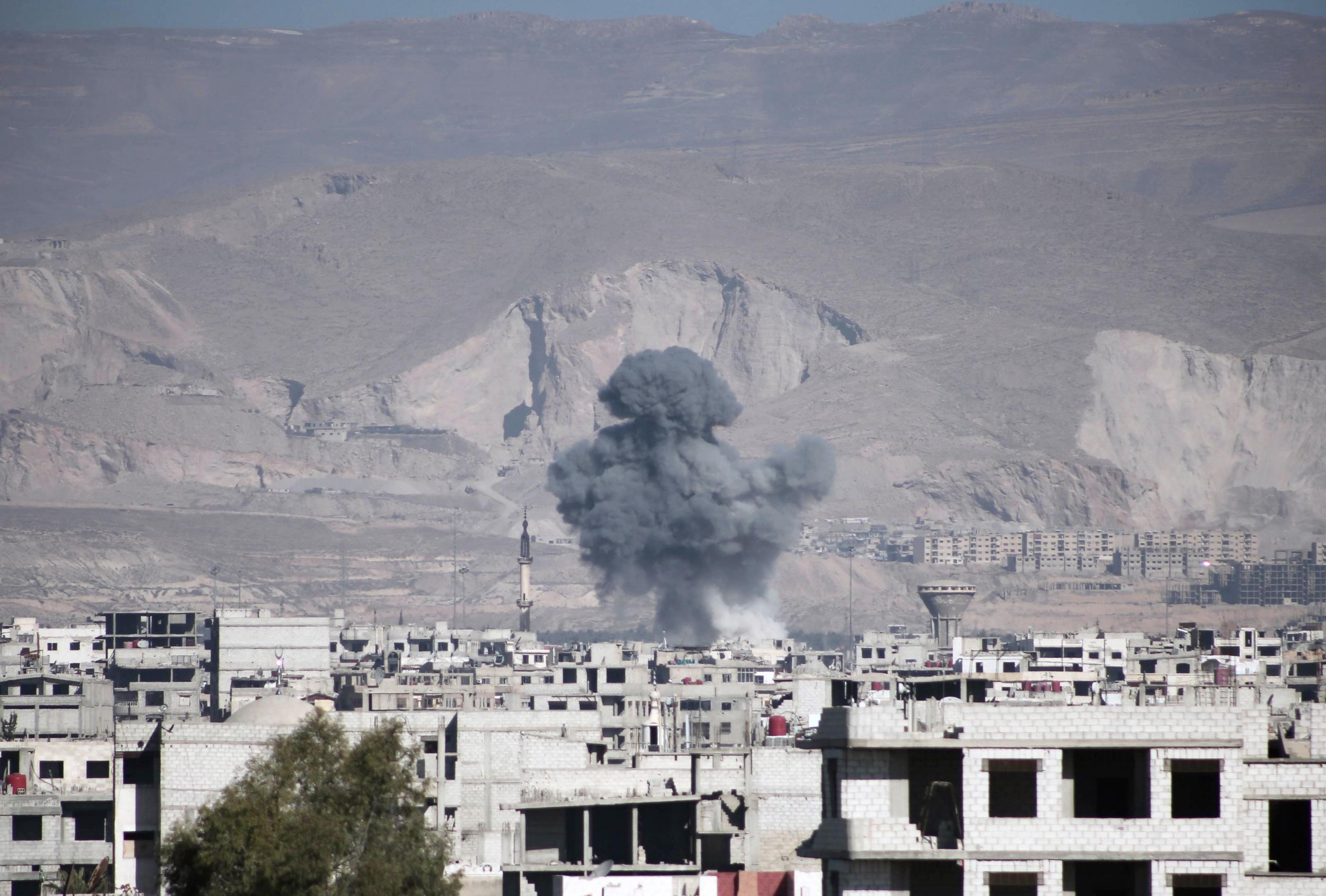War planes strike six Syrian towns - one day after ceasefire agreed
The cessation of hostilities agreement, brokered by world powers, took effect yesterday

Your support helps us to tell the story
From reproductive rights to climate change to Big Tech, The Independent is on the ground when the story is developing. Whether it's investigating the financials of Elon Musk's pro-Trump PAC or producing our latest documentary, 'The A Word', which shines a light on the American women fighting for reproductive rights, we know how important it is to parse out the facts from the messaging.
At such a critical moment in US history, we need reporters on the ground. Your donation allows us to keep sending journalists to speak to both sides of the story.
The Independent is trusted by Americans across the entire political spectrum. And unlike many other quality news outlets, we choose not to lock Americans out of our reporting and analysis with paywalls. We believe quality journalism should be available to everyone, paid for by those who can afford it.
Your support makes all the difference.War planes have attacked six Syrian towns in the western part of Aleppo province, according to the Syrian Observatory for Human Rights, as the fragile ceasefire in the region entered its second day.
A day after the cessation of hostiles started the war planes, believed to be either Russian or Syrian, bombed the villages of Daret Azzeh and Qobtan al-Jabal. According to the British-based Syrian Observatory for Human Rights the identity of the jets was not clear. Local Coordination Committees said the warplanes were Russian.
The partial cessation of hostilities, however, appears to remain broadly intact with an overall slowdown in the fighting.
Syria’s main opposition grouping recorded over a dozen violations by government troops and allies on the first day of the landmark truce, a spokesman told news agency AFP.
"There were 15 violations by the regime forces on day one of the ceasefire, including two attacks by (Lebanese militant group) Hezbollah in Zabadani" west of Damascus, said Salem al-Meslet, spokesman for the High Negotiations Committee.
US officials urged participants in the fragile ceasefire to give peace a chance. "Setbacks are inevitable," the senior administration official said. "Even under the best of circumstances, we don't expect the violence to end immediately. In fact, we are certain that there will continue to be fighting, in part because of organizations like ISIL and Al Nusra."
The ceasefire deal brokered by Moscow and Washington excludes territory held by the jihadist groups the so-called Islamic State and the Al-Qaeda affiliate Al Nusra. The two groups together control more than half of Syria. It began at midnight on Saturday (22:00 GMT Friday).
The Russian defence ministry said on Sunday that the ceasefire had been breached nine times over the past 24 hours, including by Turkey. The violations were committed by moderate rebels as well as "terrorist organisations," the ministry said.
UN special envoy for Syria Staffan de Mistura has said that peace talks will resume on 7 March if the truce "largely holds", adding that he had no doubt there would be "no shortage of attempts to undermine this process".
The UN resolution names about 30 areas in dire need of aid, including eastern eastern city of Deir al-Zour, which is under siege by the so-called Islamic State. The Syrian opposition umbrella group the High Negotiations Committee (HNC) reportedly said almost 100 rebel factions have agreed to respect the truce.
Additional reporting by agencies
Subscribe to Independent Premium to bookmark this article
Want to bookmark your favourite articles and stories to read or reference later? Start your Independent Premium subscription today.
Join our commenting forum
Join thought-provoking conversations, follow other Independent readers and see their replies
Comments